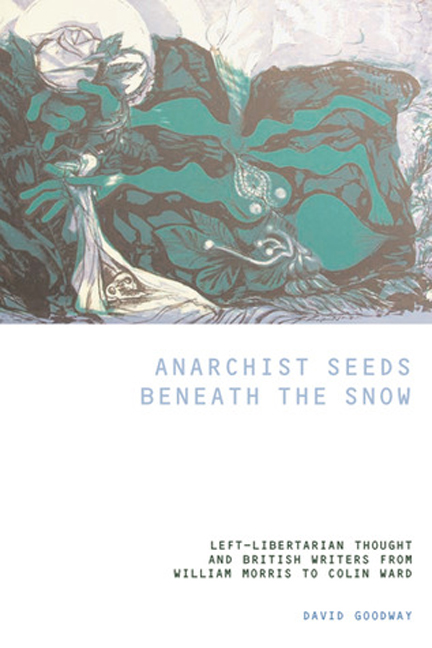 Anarchist Seeds Beneath the Snow
Anarchist Seeds Beneath the Snow Book contents
- Frontmatter
- Contents
- Dedication
- Acknowledgements
- Abbreviations
- 1 Introduction
- 2 Anarchism and libertarian socialism in Britain: William Morris and the background, 1880–1920
- 3 Edward Carpenter
- 4 Oscar Wilde
- 5 John Cowper Powys I: His life-philosophy and individualist anarchism
- 6 The Spanish Revolution and Civil War – and the case of George Orwell
- 7 John Cowper Powys II: The impact of Emma Goldman and Spain
- 8 Herbert Read
- 9 War and pacifism
- 10 Aldous Huxley
- 11 Alex Comfort
- 12 Nuclear disarmament, the New Left – and the case of E.P. Thompson
- 13 Christopher Pallis
- 14 Colin Ward
- 15 Conclusion
- Bibliography
- Index
10 - Aldous Huxley
- Frontmatter
- Contents
- Dedication
- Acknowledgements
- Abbreviations
- 1 Introduction
- 2 Anarchism and libertarian socialism in Britain: William Morris and the background, 1880–1920
- 3 Edward Carpenter
- 4 Oscar Wilde
- 5 John Cowper Powys I: His life-philosophy and individualist anarchism
- 6 The Spanish Revolution and Civil War – and the case of George Orwell
- 7 John Cowper Powys II: The impact of Emma Goldman and Spain
- 8 Herbert Read
- 9 War and pacifism
- 10 Aldous Huxley
- 11 Alex Comfort
- 12 Nuclear disarmament, the New Left – and the case of E.P. Thompson
- 13 Christopher Pallis
- 14 Colin Ward
- 15 Conclusion
- Bibliography
- Index
Summary
Aldous Huxley was born in 1894 into what Noel Annan has influentially analyzed as ‘the intellectual aristocracy’. His grandfather, the biologist Thomas Henry Huxley, was ‘Darwin's bulldog’; and his father Leonard, Charles Darwin's godson and T.H. Huxley's biographer, was to become in the early-twentieth century editor of Thackeray's Cornhill Magazine, albeit long after its Victorian prime. On his mother's side, one great-uncle was the poet and critic Matthew Arnold, another great-uncle W.E. Forster, the Liberal politician responsible for the Education Act of 1870, his great-grandfather Dr Thomas Arnold of Rugby, and his aunt Mrs Humphrey Ward, author of Robert Elsmere and other popular novels. By marrying the historian George Macaulay Trevelyan, his cousin Janet Ward linked the Arnolds and Huxleys to the even more impressive cousinage of Trevelyans and Macaulays; and when his half-brother, the physiologist and Nobel Prize winner Andrew Huxley, married Jocelyn Pease, great-great-granddaughter of Darwin's brother-in-law, the Huxleys became connected with the Peases, Wedgwoods and Darwins (a direct link to the Darwins was to come in the next generation when the daughter of his other half-brother married a great-grandson of Charles Darwin).
He was then born into a family of immense intellectual achievement which, how -ever, placed a burden of equally high expectation on its young males and this combined with the rigours of almost any late-Victorian and Edwardian bourgeois upbringing and education. In addition, Aldous Huxley was dealt three blows between 1908 and 1914 that scarred his personality and affected all his subsequent development. During his first term at Eton, when he was fourteen, his mother, Julia, died unexpectedly of cancer at the age of 45. The trauma of this early loss surfaces in both Chaper 1 of Antic Hay (1923) and Chapters 4 and 6 of Eyeless in Gaza (1936). Then, in 1911 he went down with keratitis, an inflammation of the cornea, which caused near-blindness. After eighteen months, during which he taught himself Braille, his sight began to return, yet it remained severely impaired for the remainder of his life (though he was able to dispense with spectacles from the late 1930s following his successful application of the Bates method, which he was to advocate triumphantly in The Art of Seeing [1942]).
- Type
- Chapter
- Information
- Anarchist Seeds Beneath the SnowLeft-Libertarian Thought and British Writers from William Morris to Colin Ward, pp. 212 - 237Publisher: Liverpool University PressPrint publication year: 2006
